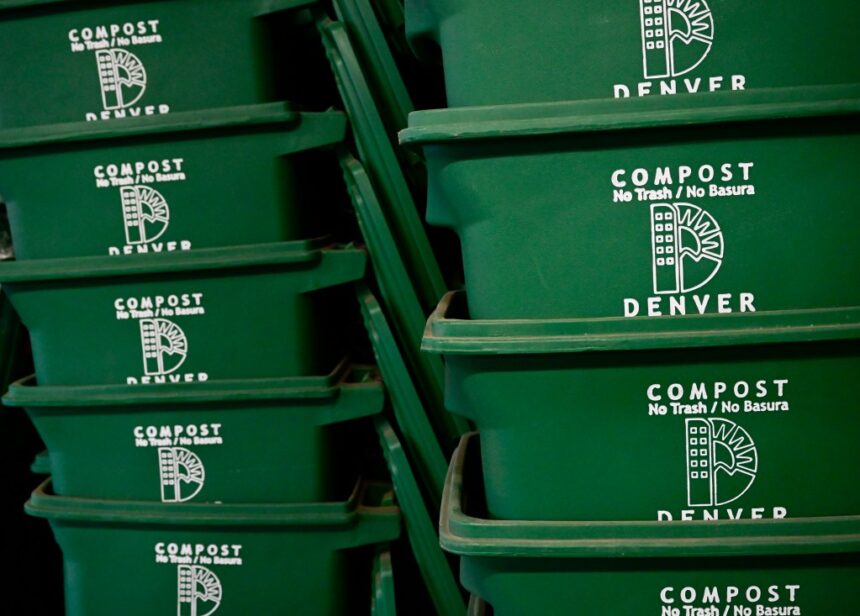Denver’s City Council learned last week that the city has all the green plastic compost bins it needs and enough employees to begin picking up food waste and yard debris for commercial composting. So what’s the hold-up in delivering services that were promised to residents almost two years ago with a hefty new trash fee?
According to reporting by Catie Cheshire at Westword, City Councilman Paul Kashmann got the answer during a recent update to the Council. It’s worse than we thought.
Officials with the Denver Department of Transportation and Infrastructure have decided to deliberately withhold services that they are fully capable of delivering because they are waiting to “educate” neighborhoods one at a time about how to compost.
The last community won’t get compost bins until it is almost 2026 — four years after the city began charging for trash services. The promise of the new “Pay As You Throw” program in 2022 was that the new fee would come with weekly recycle pickups instead of every other week and weekly composting. The city is giving most people a $9 a month credit because they don’t yet have composting, but that is about half of what it used to cost to get composting before the city mandated the service.
This is entirely unacceptable. Denverites are fully capable of figuring out how to compost correctly – some of us already compost in our backyards which is even more restrictive than commercial composting.
Implementing this good public policy quickly is important – not only does composting mean our landfills will last longer and take up less space, but food products rot in landfills where it is buried without adequate exposure to oxygen. This anaerobic decomposition releases methane, a potent greenhouse gas. Composting on the other hand allows microbes to process waste into valuable organic matter for soils that captures carbon. The U.S. EPA estimates that in 2020, 32 million metric tons of CO2 equivalents were released from food scraps in municipal solid waste facilities. Cars and light trucks in the U.S. emitted the equivalent of about 1 billion metric tons of CO2 in 2021, according to the EPA.
The City of Denver has failed to ramp up messaging about these benefits and about how to compost. Could the carts be delivered city-wide after six months of intensive messaging? We would hope so!
Since the big shift to “Pay As You Throw,” the amount of materials sent to the landfill has only been reduced by 3%.
The city could start by putting the “How to Compost” information on the top of its website. Now, the information is buried four or five clicks deep. Once you finally arrive, it takes another click to figure out what can and can’t be composted – no coffee filters, but yes, coffee.
Send information out with water bills, tax bills, nuisance notifications, trash bills, emails and newsletters. Inundate the public with the information so we can all start composting.
According to the website: “It’s simple: food scraps and yard and plant trimmings belong in the green compost cart!
“Food scraps: baked goods, bones, bread, cereal, cheese, coffee grounds, dairy products, eggs and eggshells, fish, fruits, gravy & sauces, meat, nuts, pasta, peanut butter, pizza, poultry, processed foods, rice, salads, sandwiches, spoiled or moldy food, vegetables, and leftovers.
“Yard debris: flowers, grass clippings, houseplants, leaves, plant trimmings, small branches (no larger than 4 feet in length and 4 inches in diameter), and weeds.
We believe Denverites are capable of sorting their trash.
Every day that goes by is a week’s worth of food scraps and yard waste for 140,000 people ending up in a landfill. Denver is ready to meet the goal of 50% diversion a year early, instead of a year late.
Sign up for Sound Off to get a weekly roundup of our columns, editorials and more.
To send a letter to the editor about this article, submit online or check out our guidelines for how to submit by email or mail.











